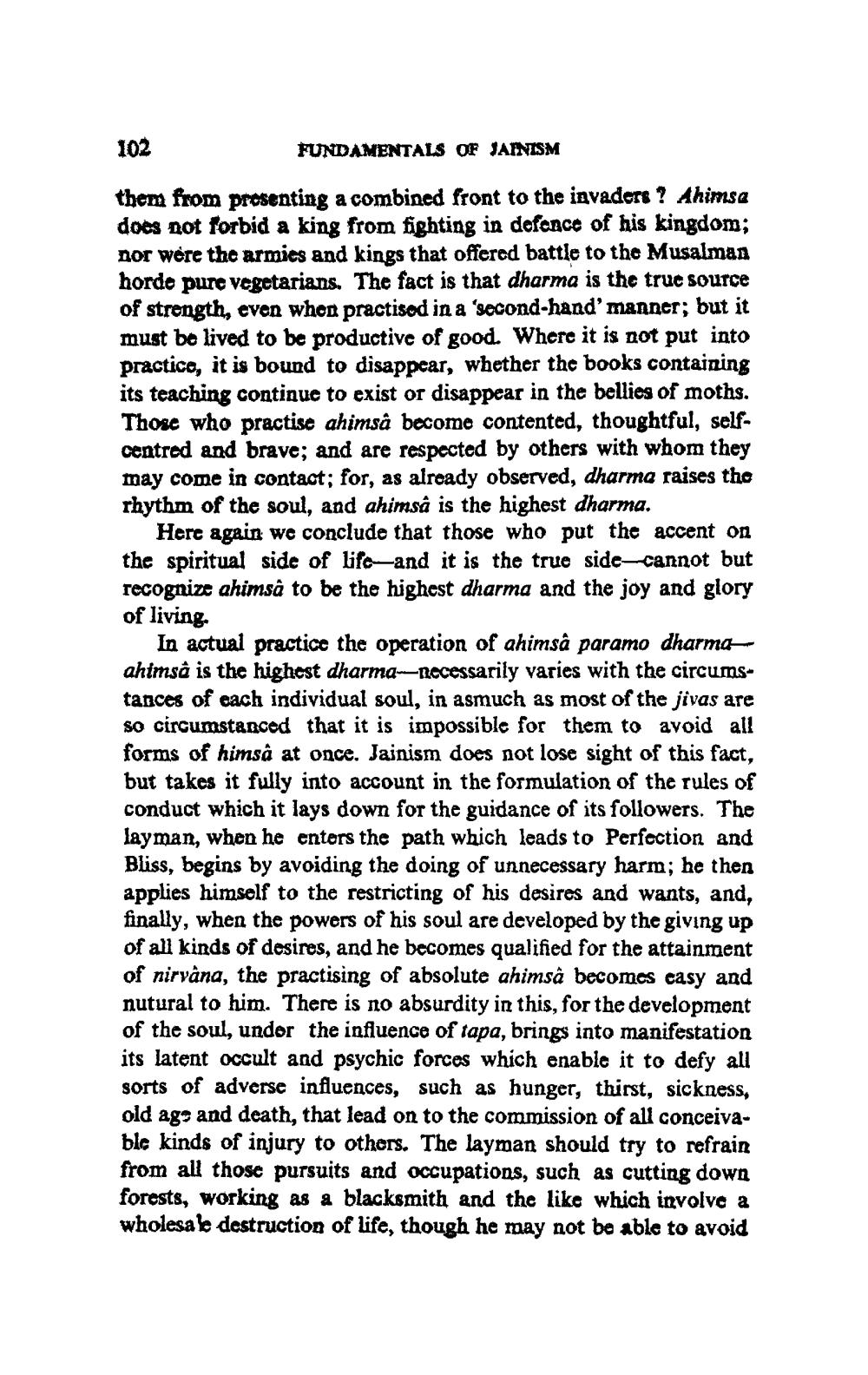________________
102
FUNDAMENTALS OF JAINISM
them from prosenting a combined front to the invaders ? Ahimsa does not forbid a king from fighting in defence of his kingdom; nor were the armies and kings that offered battle to the Musalman horde pure vegetarians. The fact is that dharma is the true source of strength, even when practisod in a 'second-hand' manner; but it must be lived to be productive of good. Where it is not put into practice, it is bound to disappear, whether the books containing its teaching continue to exist or disappear in the bellies of moths. Those who practise ahimsa become contented, thoughtful, selfcentred and brave; and are respected by others with whom they may come in contact; for, as already observed, dharma raises the rhythm of the soul, and ahimsa is the highest dharma.
Here again we conclude that those who put the accent on the spiritual side of life-and it is the true side-cannot but recognize ahims to be the highest dharma and the joy and glory of living.
In actual practice the operation of ahimsa paramo dharma ahimsê is the highest dharma--necessarily varies with the circumstances of each individual soul, in asmuch as most of the jivas are so circumstanced that it is impossible for them to avoid all forms of himsa at once. Jainism does not lose sight of this fact, but takes it fully into account in the formulation of the rules of conduct which it lays down for the guidance of its followers. The layman, when he enters the path which leads to Perfection and Bliss, begins by avoiding the doing of unnecessary harm; he then applies himself to the restricting of his desires and wants, and, finally, when the powers of his soul are developed by the giving up of all kinds of desires, and he becomes qualified for the attainment of nirvana, the practising of absolute ahimsa becomes casy and nutural to him. There is no absurdity in this, for the development of the soul, under the influence of tapa, brings into manifestation its latent occult and psychic forces which enable it to defy all sorts of adverse influences, such as hunger, thirst, sickness, old ago and death, that lead on to the commission of all conceivable kinds of injury to others. The layman should try to refrain from all those pursuits and occupations, such as cutting down forests, working as a blacksmith and the like which involve a wholesale destruction of life, though he may not be able to avoid




